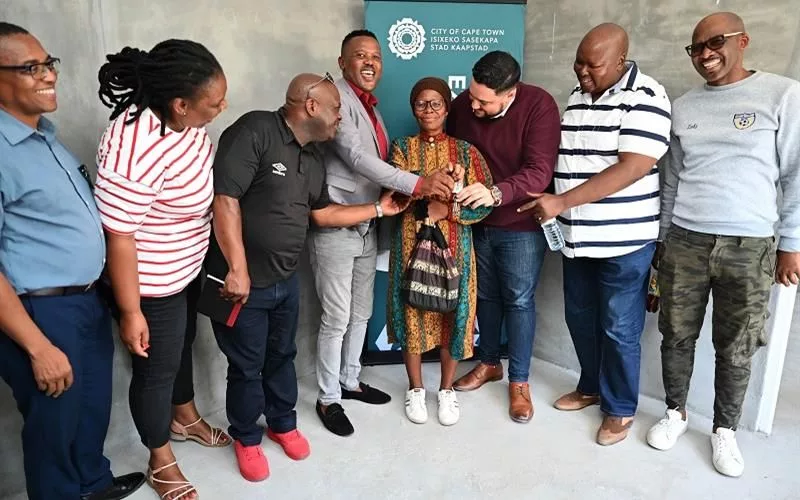The Urban Health Programme and Monitoring Initiative is a groundbreaking effort by the City to promote health equality and improve community health outcomes in Cape Town. It focuses on the socio-economic determinants of health unique to the city, providing insight to all departments on how they can contribute to tackling health determinants. This holistic health initiative sets a benchmark for other cities to emulate and signifies a shift towards a healthier, more equitable urban future.
What is the Urban Health Programme and Monitoring Initiative?
The Urban Health Programme and Monitoring Initiative is a pioneering project introduced by the City towards promoting health equality. Its primary goal is to shape relevant policies, strategies, and initiatives with a focus on improving community health outcomes. The initiative focuses on the socio-economic determinants of health that are unique to Cape Town. It seeks to provide crucial insight to all departments on how they can contribute to tackling health determinants.
Pathway to Health Equality
In an audacious move towards promoting health equality, the City has unveiled a pioneering project known as the Urban Health Programme and Monitoring Initiative. This groundbreaking effort was introduced at the Partnership for Healthy Cities conference. The initiative’s primary goal is to shape relevant policies, strategies, and initiatives with a focus on improving community health outcomes.
The Urban Health Programme and Monitoring Initiative’s conception is traced back to the City’s Integrated Development Plan. It forms the fundamental backbone of the Resilient City Foundation. This signifies the City’s unwavering commitment to establishing a balanced, healthy urban environment that caters to the well-being of every resident.
The Trigger of a Global Pandemic
The Covid-19 crisis highlighted the intersecting nature of health, equity, and poverty. It revealed the City’s urgent need to boost its capacity to supervise and improve urban health over time. This requirement was not merely a reactive measure to a worldwide health emergency, but also a forward-thinking approach aimed at addressing long-standing health inequalities.
The City sourced influence from its participation in the Partnership for Healthy Cities. This global alliance, supported by Bloomberg Philanthropies, the World Health Organization, and Vital Strategies, consists of 73 cities, including Cape Town. It serves as a strong example of the power of global cooperation. Its mission is to safeguard its combined population of over 300 million people from avoidable fatalities and injuries through the application of proven interventions.
Urban Population & Health Policies
Presently, the world’s population predominantly resides in urban regions. This scenario positions city leaders with a unique opportunity to revolutionize the battle against Non-Communicable Diseases (NCDs) and injuries. Through the implementation of policies that diminish exposure to risk factors, they have the potential to drastically cut down on avoidable deaths.
The City’s Urban Health Programme focuses on the socio-economic determinants of health that are unique to Cape Town. It seeks to provide crucial insight to all departments on how they can contribute to tackling health determinants. This could be achieved through infrastructure planning and design, service delivery, or even through creating job opportunities.
The Future of Health Equity in Metropolitan Areas
Councillor Patricia Van der Ross, Mayoral Committee Member for Community Services and Health, states, “This is a marathon and not a sprint.” The intent is to create a roadmap for the metropolis’s future. Cape Town faces a substantial load of NCDs and other avoidable fatalities. Even though the factors contributing to this load are well comprehended, this program provides crucial data that can shape upcoming strategies.
Councillor Van der Ross stresses that metropolitan regions, including Cape Town, are growing. Consequently, it is crucial that future planning incorporates a public health perspective. The Urban Health Programme, with its emphasis on health equality, is a significant stride in this direction.
Pioneering a Healthier Urban Future
This holistic health initiative signifies a shift towards a healthier, more equitable urban future. As cities become the new epicentres for population expansion, they have the chance to spearhead transformative changes in public health. This programme, with its focus on long-term health outcomes and equality, sets a benchmark for other cities to emulate. As Cape Town continues to expand, it remains dedicated to nurturing a healthy, resilient urban environment for its residents, setting an example for other cities to follow.
1. What is the Urban Health Programme and Monitoring Initiative?
The Urban Health Programme and Monitoring Initiative is a pioneering project introduced by the City towards promoting health equality. Its primary goal is to shape relevant policies, strategies, and initiatives with a focus on improving community health outcomes. The initiative focuses on the socio-economic determinants of health that are unique to Cape Town. It seeks to provide crucial insight to all departments on how they can contribute to tackling health determinants.
2. What is the Integrated Development Plan, and how is it related to the Urban Health Programme and Monitoring Initiative?
The Integrated Development Plan is a fundamental backbone of the Resilient City Foundation. It signifies the City’s unwavering commitment to establishing a balanced, healthy urban environment that caters to the well-being of every resident. The Urban Health Programme and Monitoring Initiative’s conception is traced back to the City’s Integrated Development Plan.
3. What triggered the need for the Urban Health Programme and Monitoring Initiative, and how did the Covid-19 pandemic play a role?
The Covid-19 crisis highlighted the intersecting nature of health, equity, and poverty. It revealed the City’s urgent need to boost its capacity to supervise and improve urban health over time. This requirement was not merely a reactive measure to a worldwide health emergency, but also a forward-thinking approach aimed at addressing long-standing health inequalities. The City sourced influence from its participation in the Partnership for Healthy Cities, a global alliance, supported by Bloomberg Philanthropies, the World Health Organization, and Vital Strategies, consisting of 73 cities, including Cape Town.
4. What is the focus of the Urban Health Programme, and how can departments contribute to tackling health determinants?
The Urban Health Programme focuses on the socio-economic determinants of health that are unique to Cape Town. It seeks to provide crucial insight to all departments on how they can contribute to tackling health determinants. This could be achieved through infrastructure planning and design, service delivery, or even through creating job opportunities.
5. What is the future of health equity in metropolitan areas, according to Councillor Patricia Van der Ross?
Councillor Patricia Van der Ross, Mayoral Committee Member for Community Services and Health, states that the intent is to create a roadmap for the metropolis’s future. Cape Town faces a substantial load of NCDs and other avoidable fatalities. Even though the factors contributing to this load are well comprehended, this program provides crucial data that can shape upcoming strategies. Councillor Van der Ross stresses that metropolitan regions, including Cape Town, are growing, so it is crucial that future planning incorporates a public health perspective.
6. How does the Urban Health Programme signify a shift towards a healthier, more equitable urban future?
The Urban Health Programme signifies a shift towards a healthier, more equitable urban future. As cities become the new epicenters for population expansion, they have the chance to spearhead transformative changes in public health. This programme, with its focus on long-term health outcomes and equality, sets a benchmark for other cities to emulate. As Cape Town continues to expand, it remains dedicated to nurturing a healthy, resilient urban environment for its residents, setting an example for other cities to follow.










